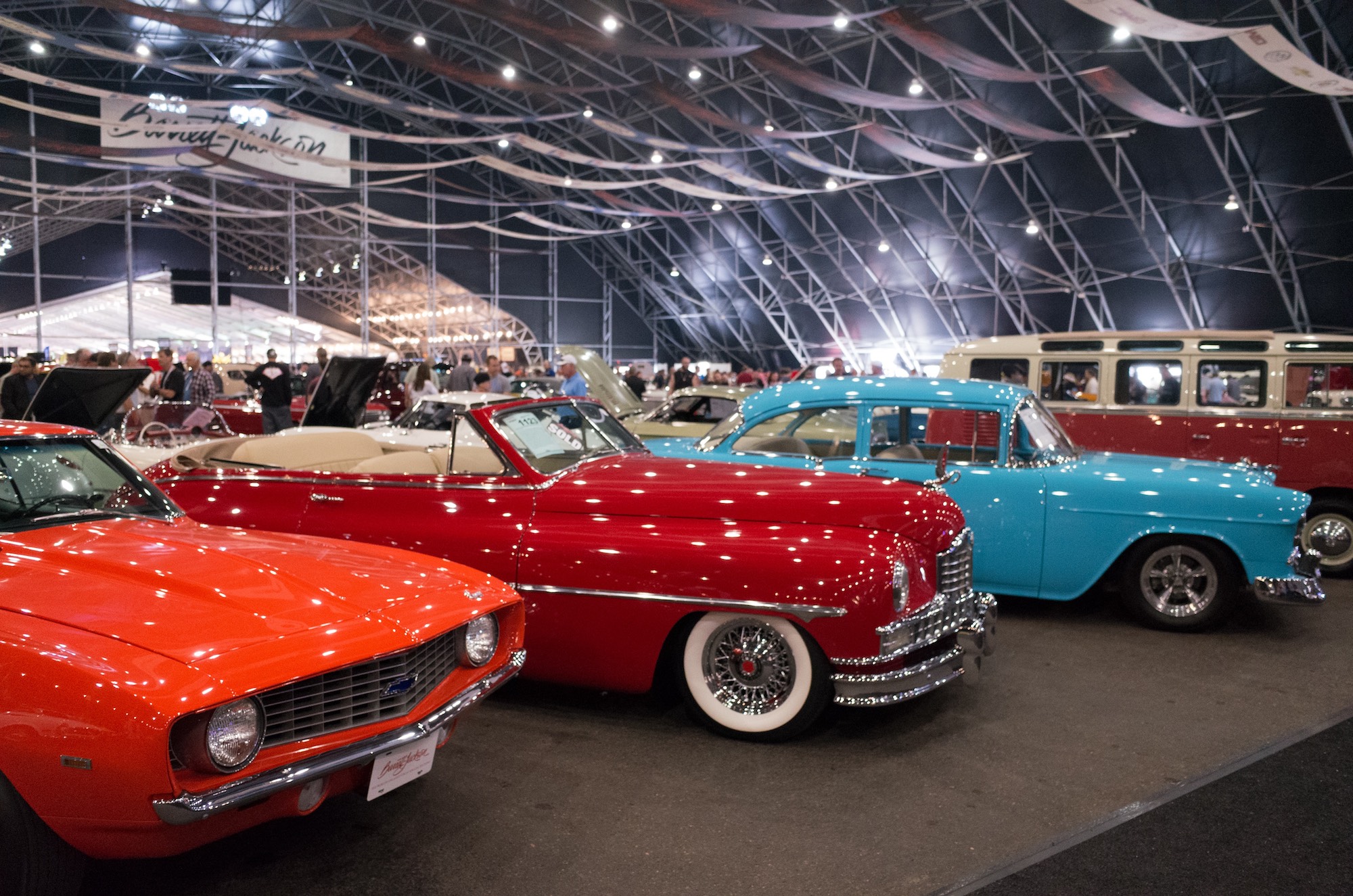Classic car auctions are all the rage these days. With vintage car market has been booming for the past decade or so, and the auctions have been growing accordingly, both in grandiosity and media coverage. You have probably seen an auction like this taking place on TV or online. The biggest events are now concourse-like affairs, fetching record prices for some vintage metal which make headlines for the weeks to follow. What these news items often fail to capture is that there is far more to auctions than Steve McQueen’s Porsches or prototype Aston Martins costing millions of euros. We’re here to fill you in on why you should visit a classic car auction and which one to choose.
“Oh I’m just looking around”
Classic car auction might be a place for you even if you cannot write a six figure check or have no place for another car in your garage. There are numerous other reasons to go to an auction. For one, you can be surrounded by likeminded people and network with those who are passionate about the same cars as you are. After all, right connections are a must in the classic car world. They come in handy once you’re looking for parts or know-how to fix your own project.
Bigger auction events are also a great chance to see the rarest of classic automobiles in flesh. Extremely valuable cars most often spend their days locked away from the public in air conditioned garages, making very few outings. Of course, once they come up for sale, they have to be exhibited on the auction grounds for both potential buyers and regular mortals.
All of the things mentioned above can be done before the actual auctioning even begins. Even if you are not interested in buying anything, high profile auction is a thrilling experience for any car buff. With tension in the air, unique cars rolling by and auctioneer pushing eager buyers towards bidding incredible amounts of money. No wonder the biggest auctions by Mecum or Barret-Jackson are televised.
If you have ever seen footage of an auction taking place, you must have noticed the unusual manner of speaking by auctioneers. In American style auctions, the auctioneer talks extremely fast and rhythmically. It almost sounds like chanting and is intended to convey a sense of urgency, forcing the bidders to make a decision quicker. This quick speech is an art in its own right, as the auctioneers of the top auctions have undergone years of training to achieve this pace of speech. On the opposite side of the Atlantic, a British style of auctioneering is more prevalent, characterized by a calmer manner of speaking while still maintaining the persuasiveness. This distinctive feature of live auctions is a huge part of the whole experience and should not be missed.
Shop locally
The golden rule for groceries applies to classic car auctions as well. Even though the biggest events may seem appealing, it makes very little sense to go there for a regular classic car enthusiast. It is best to start with something that is quite local to you – not only will you save on travel expenses and avoid jetlag, but getting a potential purchase back would be much less complicated. Once you win an auction, transporting your new vehicle becomes your own responsibility. Often, these cars come with no insurance and are not roadworthy, so getting a trailer is a must. Sometimes, the auction house may help you to get a favorable deal on transportation.
Luckily, there are usually plenty of auctions to choose from in close proximity if you are based in Europe or USA. Picking the right one for you is made extremely easy with most of the auction lots listed online weeks prior to the actual auction. There you can see both if the auction features any automobiles that catch your fancy and even what they are expected to sell for. The estimated sale prices are calculated by professional evaluators based on the condition and history of each car, providing a fairly accurate insight about the market.
Hassle-free buying experience
Granted, auction prices may be higher than one may find on Dyler or other specialist websites. At a first glance it does not seem like a reasonable way of buying a classic. First, the fierce repetition rises the price and then you have to pay a 5-10% auction house premium. With prices so high, why would one go to an auction to get a car?
Auction house does much more than just collecting their premium, they streamline the buyer-seller interaction. It is up to the auction house to estimate a value of a classic vehicle, ensuring the seller does not overcharge the buyer. What is more, auction house handles the paperwork, minimizing the hassle. Lastly, they try to ensure the car’s description is as accurate as possible. Of course, they cannot fact check everything and it is still up to the seller to remain honest and truthful when describing their car.
Just because there prices in classified ads may be lower, it does not mean one is overpaying at an auction. Auction ground is a stage for perfect capitalism, where supply and demand works out in real time. After all, every car is worth as much as someone is willing to pay for it, so the winning bid is its rightful price.
Not only for the super-rich
It is a misconception that classic car auctions are reserved for the ludicrously rich, buying cars for hundreds of thousands currency units. In reality, almost every auction has some cars that only fetch around a few thousands euros, dollars or pounds. Often, these cars are not the most desirable variations of a certain model or just something that majority of the auction goers are not interested in.
Take this immaculate Audi S6 for example. Despite being a perfect wolf in sheep’s clothing with Audi’s legendary 2.2 turbo 5-cyl., this European sports saloon did not bring a high dollar as it was sold in a primarily American auction with no reserve. Another unreasonably cheap Euro classic sold at no reserve was this E28 5 series at this year’s Mecum auction. Yes, it may not be the most desirable engine and trim combination, but no one can deny that at $1,100 hammer price, this car was an incredible bargain.
Another opportunity negotiate a favorable price is when an auctioned car does not meet its reserve. The reserve is usually set after the auction house has adjusted the seller’s expectations, thus it represents the market value quite well. If the car you’re after does not sell, it is possible to contact the seller via the auction house and come to a price that is acceptable for both, yet lower than the reserve.
Evidently, there are plenty of reasons to attend a classic car auction even if you are not a hedge fund millionaire or your last name is not Walton. Aside from everything else, they can prove to be a great weekend’s entertainment, especially in these dreary months when your beloved classic car is locked up in a garage.
---
Find your dream car among our Car Categories!














